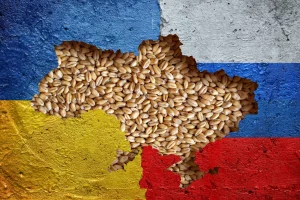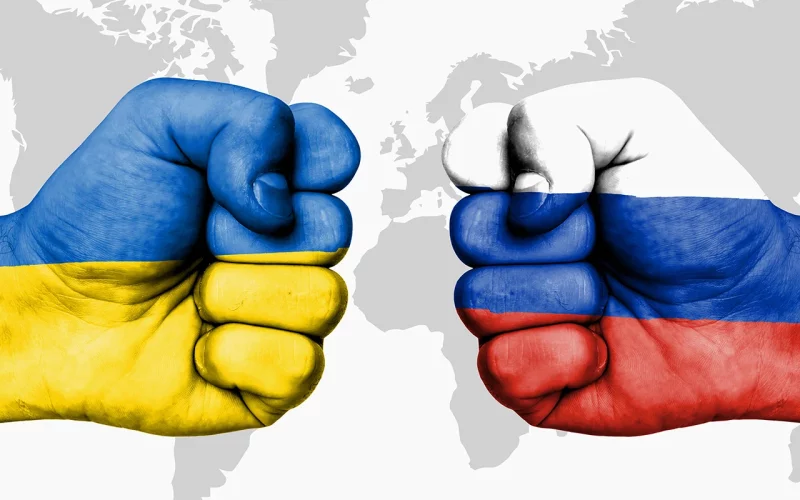Impact on Energy Prices

The Ukraine Conflict has notably disrupted energy supply chains, leading to a significant rise in global prices. The geopolitical tensions have caused interruptions in the flow of energy resources, particularly natural gas and oil, which are critical to numerous economies worldwide. As a result, countries that heavily rely on these imports have faced increased costs, further straining their economic stability. The conflict has created a ripple effect, with energy-dependent industries experiencing heightened operational costs, which are often passed down to consumers.
Additionally, the sanctions imposed on Russia due to the Ukraine Conflict have spiked energy costs significantly. Russia, being a major global supplier of energy resources, has seen its exports restricted, leading to a decrease in the availability of these crucial commodities on the global market. The reduced supply, coupled with increased demand, has inevitably driven prices up. These sanctions have not only affected the Russian economy but have also had far-reaching consequences on global energy markets, leading to increased volatility and uncertainty.
Disruption in Supply Chains
The Ukraine Conflict has caused considerable disruptions in global supply chains, resulting in market instability. The conflict has led to logistical challenges, including transportation delays and increased costs, which have hindered the smooth flow of goods across borders. These disruptions have created bottlenecks in supply chains, causing delays in production and distribution processes. Consequently, businesses worldwide have faced challenges in maintaining their inventory levels and meeting consumer demand, leading to a destabilized market environment.
Furthermore, the supply chain disruptions from the Ukraine Conflict have spiked commodity prices globally. The interruption in the supply of essential raw materials and components has led to scarcity, driving up the prices of these commodities. Industries reliant on these inputs have faced increased production costs, which have been transferred to the end consumers. This surge in commodity prices has contributed to the overall market instability, affecting various sectors and economies worldwide.
Agricultural Commodity Volatility

The Ukraine Conflict has significantly impacted global agricultural commodity price volatility. Ukraine, being one of the world’s largest exporters of grains and other agricultural products, has seen its production and export capabilities severely affected by the conflict. The disruption in the supply of these essential commodities has led to increased price volatility in global agricultural markets. Countries that depend on Ukrainian agricultural exports have faced challenges in securing alternative sources, leading to fluctuating prices and market instability.
Moreover, the Ukraine Conflict has disrupted supply chains, further increasing market instability. The logistical challenges and transportation delays caused by the conflict have hindered the smooth flow of agricultural products, exacerbating the volatility in prices. The uncertainty surrounding the availability and cost of these commodities has created a challenging environment for businesses and consumers alike, impacting global food security and economic stability.
Currency Exchange Rate Instability
The Ukraine Conflict has had a profound impact on global currency exchange rate instability. The geopolitical tensions and economic sanctions have led to fluctuations in currency values, affecting international trade and investment. Countries involved in the conflict or those with close economic ties to the affected regions have experienced significant volatility in their exchange rates. This instability has created challenges for businesses engaged in cross-border transactions, as they navigate the uncertainties in currency values.
Additionally, the Ukraine Conflict has heightened market fluctuations, influencing currency values. The uncertainty surrounding the conflict and its potential outcomes has led to increased risk aversion among investors, causing shifts in currency markets. The fluctuations in exchange rates have had a cascading effect on global trade and investment, impacting businesses and economies worldwide. The instability in currency values has further contributed to the overall market volatility, creating a challenging environment for economic stability.
Investor Sentiment and Market Confidence
Investor sentiment has been significantly impacted by the Ukraine Conflict, affecting global market stability. The geopolitical tensions and economic uncertainties have led to increased risk aversion among investors, causing fluctuations in financial markets. The conflict has created a sense of unease and uncertainty, leading to cautious investment decisions. This shift in investor sentiment has contributed to the overall instability in global markets, as investors seek safer assets and reduce exposure to riskier investments.
Moreover, market confidence has been shaken by the Ukraine Conflict, causing uncertainty in investor decisions. The unpredictable nature of the conflict and its potential economic repercussions have led to a lack of confidence in the stability of financial markets. Investors are faced with challenges in assessing the long-term impacts of the conflict, leading to cautious and conservative investment strategies. This uncertainty has further exacerbated market fluctuations, creating a challenging environment for businesses and economies worldwide.
Sanctions and Trade Restrictions
Sanctions and trade restrictions imposed due to the Ukraine Conflict have had a significant impact on global markets. The economic measures taken against Russia and other involved parties have led to disruptions in trade flows and increased costs for businesses. The restrictions on exports and imports have created challenges for industries reliant on affected regions, leading to supply chain disruptions and increased operational costs. These sanctions have had far-reaching consequences, affecting not only the targeted economies but also the global market dynamics.
The Ukraine Conflict has caused significant global market fluctuations due to the imposed sanctions and trade restrictions. The uncertainty surrounding the conflict and the potential for further economic measures have led to increased volatility in financial markets. Businesses and investors are faced with challenges in navigating the changing trade landscape, leading to cautious decision-making and increased market instability. The impact of these sanctions and trade restrictions has created a complex and uncertain environment for global trade and economic stability.
Stock Market Reactions

The Ukraine Conflict has had a profound impact on global stock market stability. The geopolitical tensions and economic uncertainties have led to fluctuations in stock prices and increased volatility in international stock exchanges. Investors are faced with challenges in assessing the potential impacts of the conflict on businesses and economies, leading to cautious and conservative investment strategies. The instability in stock markets has created a challenging environment for businesses and investors, affecting global economic stability.
Moreover, the Ukraine Conflict has triggered volatility in international stock exchanges. The uncertainty surrounding the conflict and its potential outcomes has led to increased risk aversion among investors, causing shifts in stock prices. The fluctuations in stock markets have had a cascading effect on global trade and investment, impacting businesses and economies worldwide. The volatility in stock markets has further contributed to the overall market instability, creating a challenging environment for economic stability.
Inflationary Pressures Globally
The Ukraine Conflict has exacerbated global inflationary pressures, affecting economies worldwide. The disruptions in supply chains and increased costs of essential commodities have led to rising prices for goods and services. Businesses are faced with challenges in managing increased production costs, which are often passed down to consumers. This surge in prices has contributed to the overall inflationary pressures, impacting the purchasing power of consumers and economic stability.
Furthermore, the Ukraine Conflict has disrupted supply chains, driving market fluctuations. The logistical challenges and transportation delays caused by the conflict have hindered the smooth flow of goods, leading to increased costs for businesses. The uncertainty surrounding the availability and cost of essential commodities has created a challenging environment for businesses and consumers alike, contributing to the overall inflationary pressures. The impact of these disruptions has further exacerbated the global inflationary pressures, affecting economies worldwide.
Shift in Global Trade Patterns
The Ukraine Conflict has had a significant impact on global trade routes and supply chains. The geopolitical tensions and economic uncertainties have led to shifts in trade patterns, affecting the flow of goods and services across borders. Businesses faced with challenges in navigating the changing trade landscape, leading to increased costs and logistical challenges. The disruptions in global trade routes have created a complex and uncertain environment for businesses and economies worldwide.
Moreover, the Ukraine Conflict has caused shifts in import-export dynamics globally. The restrictions on exports and imports, coupled with the disruptions in supply chains, have led to changes in trade patterns. Countries faced with challenges in securing alternative sources for essential commodities, leading to increased costs and market instability. The impact of these shifts in trade dynamics has further contributed to the overall market fluctuations, creating a challenging environment for global economic stability.












